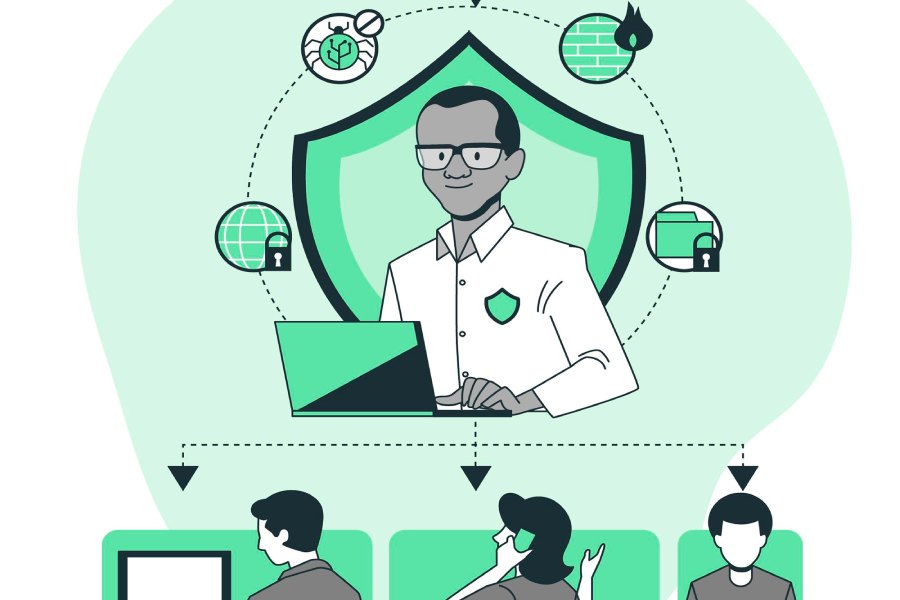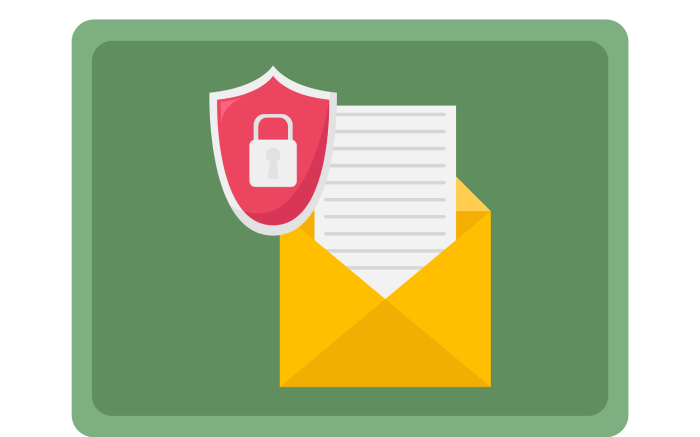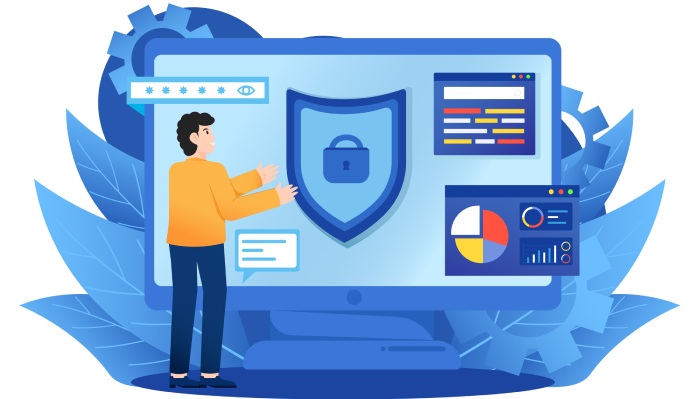Today, the digital revolution has come to a stage where businesses without an online presence could get obliterated in no time. However, an inevitable consequence of cyber risk is that if your online data and communication are not secure, you better be prepared for a disaster.
It underscores the importance of cybersecurity that every small business looking at how to sell online, you need to choose a site that allows your business to grow while not making your customers vulnerable to cyber hacking attempts. This can be done either through web builder platforms such as Wix that manage your site’s security from A-Z, or you could design your site from scratch via coding or open-source platforms like WordPress and attach security plug-ins.
However, no matter which way you choose to create your site and begin to sell online, it should imbibe and implement that the confidentiality, integrity, and security levels of your potential customers’ valuable information assets are always intact.
If you feel that you run a small business and malicious actors would ignore it, you should know that that’s not the case. Threat actors target businesses of all sizes. So, it is your responsibility to secure your new business from a cyberattack. But how do you prevent hacking? How do you make your business website more secure? The below discussion enumerates the cybersecurity basics for small businesses that could define and decide their existence in the online business world.
Top 5 Cybersecurity Essentials For Small Businesses
Below are the fundamental principles any new business must follow to improve its cybersecurity posture. These principles encompass every aspect of your digital security from various types of cyberattacks, such as network, on-premises and remote access to data, email security, secure third-party access, etc.
1. Choose your Website’s Hosting Platform
The first step in terms of understanding cybersecurity is to decipher where you are going to host your site. There are a variety of web building platforms that provide you with all in one services such as templates, hosting, domain names, etc. In terms of website security, web building platforms such as Wix assist businesses that use their platform in order to build their site with an all inclusive security protection program that abides by the NIST security standards.
However, if you choose to host your website on open source platforms such as WordPress, you can independently add plug-ins for additional cyber security protection such as Sucuri and WPScan.
2. Protect Your Files, Servers, and Devices
Protecting your files, servers, and devices can prevent malicious actors from accessing and exploiting them. The following best practices will help you safeguard your enterprise data stored on your files and devices in order to prevent hacking attempts and make your website more secure:
- Update your software, including operating systems, web browsers, business apps, etc., whenever such updates become available. You can set your system to update them automatically.
- Secure your crucial files offline on an external hard drive. It will help more if there is provision for backup of all files daily at a geographically different location.
- Set strong passwords for accessing all portable devices like laptops, tablets, and smartphones, and do not leave them unattended in public places.
- Use MFA (Multi-factor authentication) to access systems and devices in your network.
- Encrypt devices and other media containing sensitive information.
3. Protect Your Wireless Network
While protecting your operational devices is crucial, securing your wireless network is essential for website security. The following steps can help achieve this:
- Secure the Wi-Fi router by changing the default name/password that comes with the devices. Also, turn off remote management and log out as admin on setting it up.
- Use WPA2 or WPA3 encryption to prevent third parties from accessing the information in transit.
- Introduce a robust password management culture and keep changing them regularly. Do not share passwords over email or phone conversations. Limit unsuccessful login attempts as a preventive measure.
- Train and educate your employees and acquaint them with system security procedures to overcome vulnerabilities and risks.
- Have a proper data recovery plan that can prove helpful in a breach situation, and test your recovery plan often.
4. Secure Remote Connections
Today, you have many employees working remotely. Besides, third-party vendors also connect remotely to your servers. Therefore, the following precautionary measures are essential to ensure proper cybersecurity in order to prevent hacking while users access the network remotely.
a. Secure Remote Devices: Employees should use office-issued devices. If they use personal devices, ensure they are following appropriate security norms.
- Change the pre-set router passwords and default name. Update router security frequently.
- Enable full-disc encryption for portable devices connecting remotely to the network.
- Change smartphone settings to prevent access to public Wi-Fi.
- Update the antivirus software on all devices connecting to the network servers.
b. Secure Remote Access: The following security measures are essential when employees or vendors connect to your network remotely.
- Employees and vendors should use a VPN that ensures encryption of data traffic between their devices and the internet. In addition, discourage them from using public Wi-Fi.
- Train your employees on matters concerning remote access. Ensure that the devices meet your organization’s network security requirements.
- Imbibe a robust password culture and encourage MFA.
- Include provisions for security in vendor contracts.
5. Ensure Adequate Vendor Security
Today’s working environment requires supply chain vendors to connect to your network servers remotely. If they compromise security aspects at their end, the vulnerability could spill over to your network and put your entire business data at risk. The following steps can monitor vendor security.
- Include security concerns and provisions such as evaluation plans and updating security controls in the vendor agreements.
- Establish processes to confirm that your vendor complies with all regulations. Having a ‘No Trust‘ policy is critical for businesses.
- Keep all security systems updated to handle new cybersecurity threats.
- Limit vendor access to information they require and nothing more using the need-to-know’ and ‘least privilege’ principles. Use robust passwords such as 12 characters combining small and capital letters, numerals, and special symbols. Use MFA and encryption to protect access to data.
- Contact the authorities if the vendor experiences a data breach. Ensure that the vendor fixes the vulnerabilities and informs you accordingly. Notify customers if their data or identity is at risk.
6. Authenticate Your Emails
Businesses that know how to sell online will understand how crucial email communication is for success. Hence, securing emails is also vital for cybersecurity. Some of the most popular types of cyber attacks use email phishing as their main weapon. Email authentication can prevent scammers from sending phishing emails using your network credentials, affecting your reputation and resulting in losses. The following steps should help you authenticate your emails.
- Formulate a well-defined Sender Policy Framework (SPF).
- Use DKIM (DomainKeys Identified Mail) to add digital signatures to your outgoing emails.
- Set up DMARC (Domain-based Message Authentication, Reporting, and Conformance) framework to notify issues with emails checked using SPF and DKIM.
- Report to the authorities concerned if your email is spoofed.
- Notify customers if there is any risk of data or identity theft.
- Alert staff members to update their security practices.
Final Words
Setting up a new online business is challenging. Besides knowing how to sell online, learning the cybersecurity principles mentioned above is essential to ensure a robust cybersecurity culture. Besides, organizations should consider cyber insurance that can support in case of losses from cyberattacks, like phishing, ransomware, email spoofing, and tech support scams.
Finally, businesses should put the five primary principles of the NIST Cybersecurity Framework into practice. These five areas include Identify, Protect, Detect, Respond, and Recover. Adhering strictly to the best cybersecurity practices for your business enables you to run it without worrying about cybersecurity issues.


